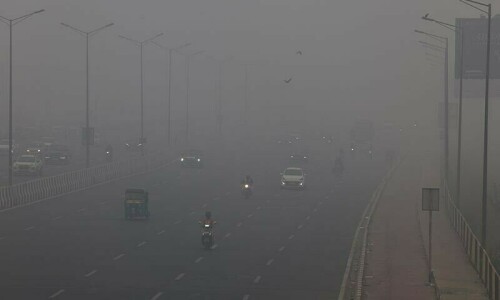GENEVA: Cholera infects millions of people each year, 10 times the number of cases reported by countries who fear losing tourist or trade income by acknowledging the real scale of an outbreak, experts said on Monday.
Claire-Lise Chaignat, cholera coordinator at the World Health Organisation, said the diarrhoeal disease that is spreading fast in Zimbabwe is also under-reported because the stigma attached to it means people often fail to seek treatment.
“People see it as a dirty disease,” she said in the latest WHO Bulletin. “People don’t want to talk about it. They think it’s normal to have diarrhoea. Quite often, nobody is interested in providing the minimal support needed for prevention.”In 2007, governments reported just 178,000 cases of cholera, which is spread mostly through contaminated food and water.
According to Chaignat, about 120,000 people most likely died of cholera that year, compared to the 4,031 official toll reported to the WHO.
Angola, Sudan, Ethiopia, Afghanistan, Liberia, South Africa and Madagascar have all had large outbreaks in the past decade, and Iraq had more than 4,000 cases last year.
Zimbabwe’s cholera epidemic has killed more than 3,000 people and infected 63,000, according to UN figures. In both Iraq and Zimbabwe, WHO and health officials have monitored the outbreak closely.
WHO disease control expert Francesco Checchi said in the WHO Bulletin that Zimbabwe’s outbreak had its roots in damaged urban piping, and spread because of unsanitary conditions that caused bacteria from excrement to contaminate water sources.
The government in Harare initially recommended that people self-medicate with a home-made solution of sugar and salt to prevent dehydration, but ultimately oral rehydration salts needed to be shipped in to save lives, Checchi said.
“Unfortunately, the cholera epidemic has struck at a time when most Zimbabweans are unable to purchase salt and sugar,” he said, referring to the country’s severe economic crisis that has caused hyper-inflation and the collapse of health systems.Cholera is characterised in its most severe form by a sudden onset of diarrhoea that can cause death by severe dehydration and kidney failure, sometimes within hours.
Health experts said countries need to do more to prevent the onset of cholera, such as improving water and sewage systems and encouraging hand-washing and other good hygiene practices.—Reuters














































Dear visitor, the comments section is undergoing an overhaul and will return soon.